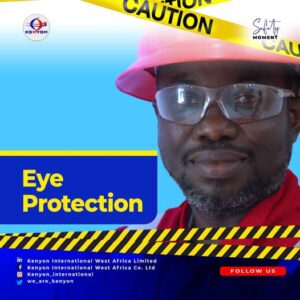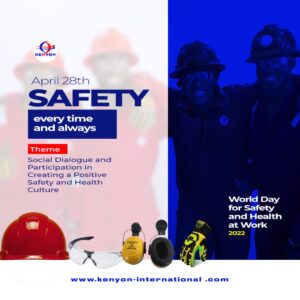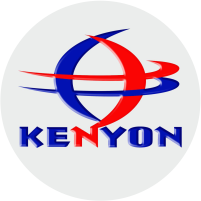Dr Ekpenyong Discusses Vital Issues Facing the Oil and Gas Sector in 2023
Use the Right Eye Shade ( Story)
Sharing PPE: A Blessing and Ubong’s Story

Eye Protection (How to Identify Substandard Safety Goggles)

Dangers of using Cotton Swab to Clean Your Ear Canal
Health professionals describe cleaning your ear canal with a cotton swab, Q-tip, or any other sharp materials like a broomstick, a key and a feather as unhealthy or dangerous because it could cause an injury or infection to the ears.
When we clean the ear canal, we simply want to empty the earwax from our ears to keep it from looking unsightly, but the earwax—which is a cleansing substance—traps dirt and prevents bacteria from getting deeper into your ears to prevent any infection.
Blockages of the ears often happen when we try to clean the ear with ear swabs or pointy objects. The ear swab pushes the earwax deeper into the ears, causing an obstruction. Pointy objects, on the other hand, can cause rupturing of the eardrum.
Ideally, your ears are not meant to be cleaned, but if there is too much buildup of wax, follow these steps to clean the ear.
a. Soften: put a few drops of baby oil or glycerin into your ear to soften the earwax.
b. Irrigate: after a few days of softening the earwax, use a bulb syringe to add warm water to your ear canal
c. Drain: Then gently tilt your head to the side allowing the water to drain from your ears
d. Dry: Use a clean towel to dry the outer part of your ear.
Learn, today, to stop using pointy objects and cotton swabs to clean your ears. Prioritise the safety of all your senses.
Have you experienced any issues with cleaning your ears?
Do share with us to enlighten our readers more.
Gate Valve and Bonnet Replacement
The choke valve being one of the valves that make up the Christmas tree plays a sensitive role during production. In upstream oil and gas industry, choke valves are used wherever there is a requirement for wellhead flow and pressure control. That is, it is used to regulate the flow of fluid to keep pressure under control. Operators are constantly monitoring the production system, and hardly do they ever open the choke valve fully because the level to which the valve is opened will determine the life of the well. This highlights the need for careful control of the flow of the well fluids to avoid any production well formation damage. A client contacted us when their wellhead adjustable choke became faulty and was affecting their production. We removed the old choke and successfully installed a new one. After the replacement of the choke valve, our client was able to optimize production.At Kenyon, our desire is to see our clients achieve their set goals within the speculated time and maximize production.We are Kenyon!
Kenyon celebrates World Day for Safety and Health at Work
Having a safety and health culture is paramount to our organisation.
In our industry, we promote conversations around safety and health to curb occupational accidents and disease.
Our safety culture has tremendously helped us in gaining our status as one of the most reliable indigenous companies in Africa with a great global positioning.
Today, we join in celebrating Safety and Health at Work globally through raising awareness on how to work safely and maintaining a clean bill of health.
For us at Kenyon, it is Safety every time and always.
Happy World Safety and Health Day

Acquire Professional and Soft Skills: Victor Ekpenyong Encourages Young Professionals
The CEO of Kenyon International West Africa Company Limited, Mr Victor Ekpenyong, has, at the last Society of petroleum Engineers Young Professional Symposium held on the 23 April, 2022 in Port Harcourt, reaffirmed his resolve to continue partnering the young Professionals in ensuring that they advance and gain insights into their career paths.
He made this statement in his opening remark at the symposium held by section 103, stating that Kenyon international is devoted to empowering Young Professionals, SPE Young Professionals-YP: Port Harcourt Section, through deploying strategies that can add value to them. He equally reminded them how Kenyon International in 2020 supported Young Professional Graduates to empower their respective business ideas.
He encouraged the Young Professionals not to relent in acquiring professional and soft skills, and attend to their tasks ethically with utmost sincerity, adding that the industry gives an open access platform for those who have gained experience and acquired all the aforementioned skills to excel.
Stay tuned to find out what we have in store for Young Professionals.



IDLE WELL REACTIVATION: A SOLUTION TO A CLEANER ENERGY TRANSITION IN NIGERIA
The CEO of Kenyon International West Africa Company Limited, Victor Ekpenyong, at the just concluded Oloibiri Lecture Series and Energy Forum held on the 31st of March 2022, has proposed that deploying an idle well management strategy and remote well control are the two key solutions to combating oil theft which can equally maximise oil production to increase revenue and facilitate Nigeria’s energy transition.
The lecture which took place at PTDF Towers, CBD in Abuja was themed ‘Global Energy Transition: Implications on Future Investments in the Nigerian Oil and Gas Industry’ and attended by industry dignitaries.
In Victor Ekpenyong’s opening remark, he stated that oil theft has been the bane of our economy as it had led to loss of revenue and environmental pollution; and since oil accounts for the major source of revenue in Nigeria, it behooves the federal government to maximise its oil production through putting measures that deters oil theft and vandalism.
In his speech, he explained that an idle well management strategy will enable a well to be decommissioned safely to protect it from being vandalised and restore an abandoned well to full potential when necessary while remote well control is a technology that can be deployed to protect oilfields facilities and environment from hazards such as blowouts.
Victor Ekpenyong appealed to the federal government to integrate the idle well management strategy and remote well control to help reduce the number of emerging idle wells and boost oil production which can in turn help fund and facilitate a smooth transition into a clean energy.




